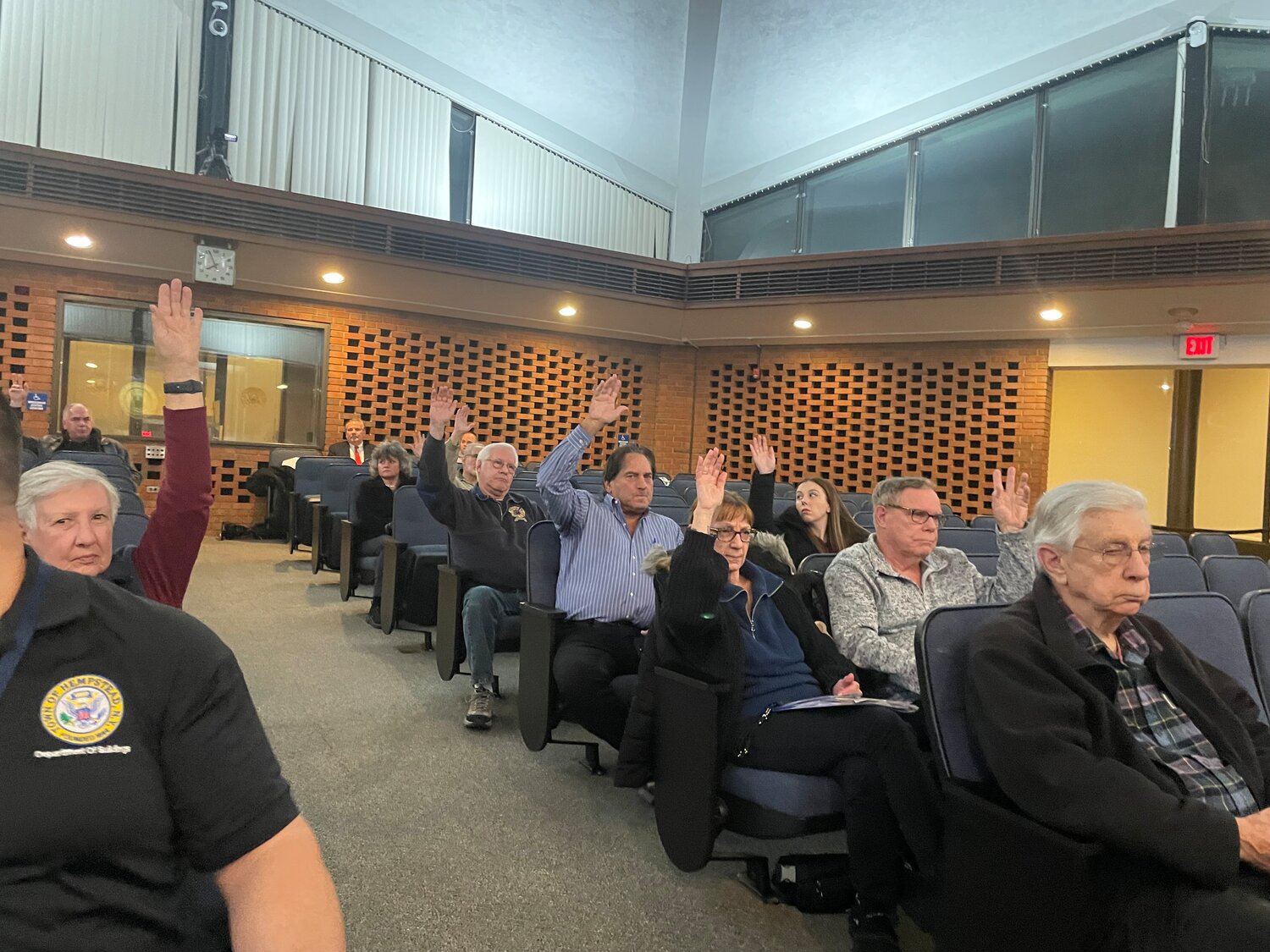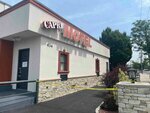Can town condemn Capri Motor Inn? Legal battles surrounding West Hempstead motel continue
Hempstead has yet to publicly propose plan for Capri
The Town of Hempstead is taking steps to take over the Capri Motor Inn in West Hempstead through eminent domain — but would such an acquisition be legal? That’s the question debated by town officials, the motel owners, and neighbors at a public hearing last week in front of special hearing officer Anthony Marano.
“What we have heard tonight, and in your notice, respectfully, is completely illegal,” Christian Browne, representing the Capri owners, L&S Realty, said. “And (it’s) the complete opposite of what the eminent domain proceeding law exists to do.”
The motel, on Hempstead Turnpike, has been at the center of multiple legal battles with the town since officials shuttered it last August, declaring it a public nuisance. Now the town wants to condemn the motel — but doing so will require not only a determination of public use for the property, according to state and federal laws, but also fair compensation for Capri owners.
The absence of the motel — which police had to visit 156 times between January and August last year — is inherently public use, argued John Ellsworth, a senior associate for the environmental planning firm providing counsel to town officials.
“The permanent discontinuation of the motel use, through the town’s acquisition via eminent domain, will provide a significant and lasting community character upgrade,” he said.
Although “public use” is most commonly used in reference to infrastructure like parks, highways or recreation centers, there is legal precedent for the term to be applied more broadly, according to Allan Hyman, special counsel to the town board.
In a similar case between a real estate company and the Town of Brookhaven, he said, the court ruled “the term ‘public use’ is broadly defined to encompass any use, which contributes to the health, safety, general welfare, convenience or prosperity of the community.”
Under this definition, getting rid of Capri is public use enough, the town counsel argued, because it would eliminate the recurring problems officials and neighbors have complained about there.
But there is just as much legal precedent for the opposite, Browne said. In another New York eminent domain case, the court ruled that because the town had no specific plans for the property, the “public use” of an eminent domain takeover remained unproven.
“The existence of public use must be determined at the time of the taking,” Browne said., “since the requirement of a public use would otherwise be rendered meaningless by bringing speculative future public benefits which might never be realized within its scope.
“In simple terms, the government cannot take your land and then decide later what to do with it.”
Ellsworth acknowledged Hempstead officials have yet to determine how the property could be used. “Once a future use has been decided upon, the need for further review will be evaluated.”
If town officials had followed procedure and named a public use in its notice — like creating a parking lot or recreation center — Browne said, they’d be within their rights to pursue eminent domain. But as things stand, he added, the town’s actions are unlawful.
“You cannot proceed without identifying a public purpose,” Browne said. “And a public purpose is not taking private property away from a disfavored owner and later on giving it to somebody else that you think is better, or later on identifying what might be a public purpose down the road.
“You have to tell us that now, so the courts and the owner can evaluate whether, in fact, what you're doing is lawful and proper.”
The motel’s label as a public nuisance — which, Browne added, the Capri owners are contesting in federal and state court — supports Hempstead condemning the property, Ellsworth said.
But even that determination, Browne argued, was not legal.
The town shuttered the Capri Motor Inn — which it had struggled with for a number of years — and declared it a nuisance under the building department last fall. But there were no grounds to close the motel that day, Browne said, because the town failed to follow the procedure outlined in its dangerous buildings code.
In order to label the inn a “dangerous building,” he said, the town court needed to hold a hearing allowing officials to bring evidence of structural dangers and code deficiencies before a ruling is made. Such a proceeding never happened.
“The motel was closed without any process,” Browne said. “It is not true to say that this motel was closed because of a dangerous building. That was something that was said after the fact.”
The alleged deficiencies in the town’s process did not sway public opinion, which seems to still be overwhelmingly in support of permanently closing the Capri Motor Inn. A petition to keep the motel closed permanently — created by the West Hempstead Community Support Association in August — currently has nearly 880 signatures.
The hearing will continue through March 1, with the town accepting public comments through its lawyer, John Maccarone, at johnmacc@hempsteadny.gov.









